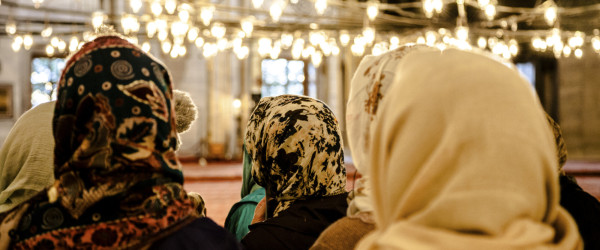I was shocked to read recently about evidence of women who were filmed giving two-hour lectures in London in secret closed women-only meetings in community centres ‘glorifying’ ISIS to women and children. Hannah Stuart, a counter-terrorism expert with the Henry Jackson society, labelled the presence of young girls and children “particularly worrying,” in regards to “what these children are being taught to believe about their own state versus one of the most brutal terrorist organisations”.
Although there is limited information in the article regarding the background of these female lecturers, it is surprising that they have been able to create a group where women would bring their children and attend. The limited information given in the article does not allow discussions around the attendees or how the group was set up. It would be more informative if the journalists had written about how the groups were set up and what was offered that compelled the other women to attend. With this information, more could be done to understand why these women were there and what compelled them to stay.
A common reason for people seeking to be part of groups is to feel included in the community and to find similar people of their religious group and background. However, people I know in the Muslim community have become nervous about attending some Islamic centers teaching Islam, because they cannot verify what is being taught. Examples of their concerns include cultural differences or alternative teachings that are not aligned with their view of Islam. The lack of regulations and who is teaching are issues that need to be tackled. We need to ensure that there is consistency in regards to what is being delivered at the religious lectures and also a selection process based on the C.V and qualifications of those applying for positions as religious scholars.
The lack of regulations and the lack of structure around who can teach matters of Islam in the U.K poses a risk with these organizations, unregulated as they are, of being infiltrated by people who may be seeking to manipulate these environments for their own agendas. An increase in regulations would also help to promote more cohesion between Islamic centers in the U.K; currently prayer times and the times of the fasting period during Ramadan differ depending on which mosque you receive information from.
I also believe we need to support an increase of Muslim women scholars to ensure that women have qualified teachers to assist with their learning. Women generally feel more comfortable about approaching other women for advice or about sensitive issues and, if there were more women scholars available, agendas such as the ones highlighted in the article could have been exposed earlier or avoided in the first place.
This leads me on to the issue of the ‘secret closed’ nature of the exposed group. It is everyone’s responsibility to query why religious groups or meetings are closed to the public. They should not be places that people avoid, are scared of, or are restricted to enter; this only creates a suspicious atmosphere and allows occurrences like the this to happen. It heightens mistrust in society and puts people at risk of being radicalized. All religious forums should have an open door policy to allow Muslims & non-Muslims to become part of a cohesive community.
One example is Birmingham’s Central Mosque which is open to Muslim’s and non-Muslims throughout the year. They do great work to involve the community, support individuals, offer charity and provide fantastic services to educate other Muslims and non-Muslims on the morals and values of Islam. By implementing a more open and inclusive religious environment, we can become better at eliminating groups where people can hide behind the face of religion and promote extremism.
Header image source


2 Comments
[…] Read the full article for Muslimah Media Watch here. […]
[…] Read the full article for Muslimah Media Watch here.1 […]